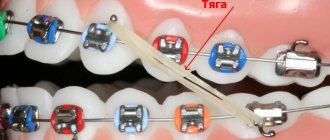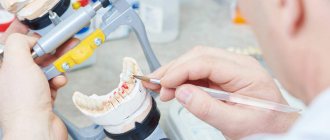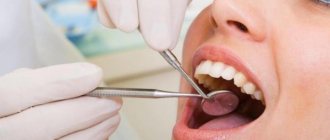In contrast to higher non-medical education in Russia, which consists of 4 years of bachelor’s and 2 years of master’s, future doctors will undergo a much longer, multi-stage training. A full-time student must study a specialty at his university, and then complete residency or graduate school. On average, it takes 9 years to become a doctor after 11th grade.
In our country, a medical student after 6 years of study at a medical university is not yet a doctor; in order to become a practitioner, he needs a specialist certificate. You can receive such a certificate only after residency training, as part of your postgraduate education. At a medical university, a student receives knowledge in “medicine” or “pediatrics,” but only after specializing in residency can he become a doctor of his chosen profile - a neurologist, gynecologist, dermatologist, etc.
There is another medical specialty, which, unlike others, can be obtained by correspondence and in less time. This is a pharmacist, and the training consists of a specialty and a master's degree, that is, after 6 years you can become a pharmacist, but not a doctor.
Until 2016, in Russia, residency had an alternative - internship, which consisted of a year-long practice in a hospital under the guidance of an experienced doctor, and one could try oneself in different specialties. However, this opportunity to choose, like the internship itself, has been canceled since 2016.
Is the medical profession the most difficult?
On average, you can become a qualified specialist in Russia in 3-6 years (after receiving general education). The most prestigious and promising is a university diploma, which can be obtained after 5-6 years of study. This applies to most economic, cultural, technical and other specialties. But the situation is completely different with professions directly related to medicine.
How long to study in medical school to become a doctor? Correct answer: at least 7-9 years. Why does it take so long, you ask, since you can study to become an accountant 2 times faster? A doctor must have a perfect knowledge of anatomy, biology and chemistry. Moreover, it is important to be able to apply all acquired knowledge in practice, to have an understanding of the structure of the human body and the mechanism of all processes occurring in it. Errors in medicine are unacceptable, because the price of each of them can be a human life. It is for this reason that training of specialists must be of the highest quality and takes a lot of time.
Required Skills
For medical training at the institute, knowledge of the following subjects is required: biology, chemistry, Russian. You also need:
- React quickly to non-standard situations;
- Be able to communicate and listen to patients;
- Take responsibility for your own decisions;
- Be attentive to detail;
- Have a good memory;
- Have stress resistance;
- Don't be afraid of blood.
Due to the need for advanced training, a physician must strive for self-development and self-improvement.
Personal qualities required to work in the medical field
You can become a good doctor only by vocation. This is what real healthcare professionals say. For successful practice, a doctor needs iron nerves, good psychological stability and the ability to maintain composure even in crisis situations. The specificity of medical professions involves regular encounters with various injuries and pathologies of the human body, as well as contact with blood and other biological fluids. This job is not for the faint of heart or the squeamish.
Those who dream of a good salary and a stable work schedule immediately after graduation should not even think about how long to study at a medical institute. In practice, representatives of the most noble profession are often content with average, if not low, earnings. In order to make a good career in medicine, you need to devote your whole life to it.
Range of duties
Doctors' responsibilities include:
- Examination of clients and clarification of complaints, identification of symptoms;
- Referring patients for tests;
- Making a decision on the diagnosis;
- Prescription of treatment;
- Monitoring the progress of therapy;
- Conducting surgical treatment;
- Issuing recommendations for further recovery.
Doctors provide emergency care, prescribe rehabilitation procedures, and prepare reporting documentation. Doctors are engaged in research, developing new treatment methods and improving old ones.
How many years do post-secondary applicants study at medical school?
Every graduate of a general education institution can go to study to become a doctor. In Russian universities, admission of applicants is carried out based on the results of the Unified State Exam. Some universities conduct their own interviews and tests for everyone who wants to enroll. The greatest attention is paid to such disciplines as biology, chemistry and physics. How long do students who enter a university after graduating from high school need to study in medical school? The duration of training is 6 years.
After completing your studies, you will not be able to find a job in your specialty. To begin a medical career after receiving your diploma, you must complete an internship and residency. This is, in fact, a long-term practice carried out on the basis of existing healthcare institutions. The duration of this stage of training is from 1 to 3 years, depending on the chosen specialization. Only after successful completion of an internship or residency can a young specialist find a job in his specialty.
Specializations
There are doctors of different specializations, but all of them can be classified according to their areas of activity:
- Therapeutic. Doctors in this category see patients, prescribe and carry out conservative treatment, and refer them for laboratory tests. If necessary, they provide referrals for operations.
- Surgical. Treatment through surgery: removal, transplantation, restoration.
- Psychological. These employees deal with psychological problems and help restore mental health.
- Pathoanatomical. Conducting morphological studies and diagnostics based on them.
Doctors are divided into broad and specialized specialists. The first ones diagnose various diseases and, if they suspect a disease of any organ, refer them to a highly specialized physician.
Subspecialty doctors examine specific human organs or diseases. The most popular among them are:
- Allergists. They identify the body’s allergic reactions to various irritants and help cope with them, and study the immune system.
- Andrologists . These doctors specialize in normalizing the male reproductive system.
- Venereologists. Treat sexually transmitted diseases.
- Gastroenterologists. The competence of these doctors includes the treatment of pathologies of the gastrointestinal system.
- Gynecologists. They are specialists in the field of the female reproductive system.
- Dermatologists. Responsible for curing diseases of the skin, hair and nails.
- Cardiologists. Treat diseases of the cardiovascular system.
- Speech therapists. Correct speech defects.
- Mammologists. Diagnose and treat diseases of the mammary glands.
- Neurologists. The competence of these doctors is the proper functioning of the nervous system.
- Oncologists. Tumors are examined and their pathogenesis is analyzed.
- Orthopedists. Responsible for the health of the musculoskeletal system: bones, ligaments, joints, tendons.
- Otolaryngologists. They specialize in diseases of the ear, nose and throat.
- Surgeons. They treat injuries and diseases that require surgical intervention.
- Endocrinologists. They analyze the work of the endocrine glands, the hormones they produce, and deal with diseases of the endocrine glands.
In addition, medical universities train nurses, pharmacists, dentists, and medical biochemists. Depending on the specialization, the preparation period varies.
Secrets of successful admission for future doctors
All schoolchildren who dream of becoming doctors should finally decide on their desire as early as possible and try to learn as much as possible about their chosen profession. Medicine requires the student to have a good knowledge of the school curriculum of biology, chemistry and physics. At the same time, tests and exams in a specialized educational institution are so difficult that it is impossible to simply cheat. If necessary, while still at school, you should start attending specialized courses or hire a tutor for individual lessons. The main goal of the future applicant is to successfully pass the Unified State Exam. If possible, you should choose a specific university in advance, attend an open day and find out all the admission rules.
Admission conditions
Those with secondary medical education pass entrance tests in the Russian language, biology, and chemistry. To enroll after school, you need to pass the Unified State Exam.
Applicants with Russian citizenship provide a package of documents consisting of: an application, personal data form, certificate, passport, photographs, health certificate.
Medicine is for those who know natural sciences. If you lack basic knowledge, it is better to choose a college or another direction.
When choosing a private educational institution, you should make sure that it is accredited. You need to be sure that this will not cause obstacles to obtaining a diploma and starting a career.
Truths and Fictions About Studying in Medical School
Today, it is possible to obtain higher medical education in Russia only through full-time study. At the same time, absences without valid reasons are perceived critically in the overwhelming majority of educational institutions. You know how many years you need to study in medical school. Before enrolling, it will also be useful to come to terms with the idea that it is physically impossible to earn extra money while studying at a university in this field. It will be useful for applicants to discuss the issue of admission with their parents, as their help and support will be very important during their studies.
The first three courses are considered the most difficult. It will be useful for every student to know that it is possible to be expelled for failing to complete exams on time, systematic absences and general poor performance. Students who successfully enroll in the fourth year usually graduate successfully from the university. Moreover, after completing the third year, students of some faculties begin to work part-time as paramedical personnel, gaining the necessary experience. There’s even a joke among future doctors: “I’ve entered my fourth year and you can safely get married!” The point is that the last years of study are easier than the first.
Story
The history of ridding people of diseases goes back to ancient times. Even before the invention of drugs, there were healers and healers who successfully used herbs and other natural ingredients for treatment. But it was the scientific approach to treatment that originated during the life and work of Hippocrates, to which all physicians take an oath after completing their training. It includes the basic principle of the doctor - “do no harm.” During the time of this great scientist, the unity of man and the environment, as well as the need for bed rest to speed up the healing process, had already been proven.
During the same period, the great Avicenna practiced and studied the science of treating patients. In his works, he wrote about how strongly the patient’s desire to get well influences the likelihood of his recovery, as well as the connection between the disease and psycho-emotional characteristics. In the 18th century, Anton de Gaen proposed a method for changing body temperature, and Leopold Auenbrugger introduced percussion into examination with a detailed description of the rationale for its necessity.
Medical science in the 19th century was enriched with new discoveries. Rene Laennec invented a stethoscope for listening to the heart and other organs, the first instrumental diagnostic methods appeared, and in the 90s of this century X-rays were discovered. Doctors of many specialties still use this unique discovery to identify pulmonary, articular and other pathologies.
In Russia, therapy was based on the discoveries of great physiologists (Sechenov, Pavlov, Botkin). Ostroumov created a palpation technique for examination. Therapists began to be taught according to Mudrov’s postulate, which called for “treating not the disease, but the patient,” thereby paying attention to the individual characteristics of the body and its ability to recover.
Training on a paid and budget basis
Medical universities are noticeably different from all others not only in terms of study. In such educational institutions, a relatively small number of educational places out of the total number are intended for students receiving education on a commercial basis. On average, about 10% of students can enroll in a paid department. This distribution is not random. Its main goal is to provide a large number of talented students with good knowledge and interest in studying.
Any medical school is not a place where you can legally “buy a diploma in installments.” Knowing how long you need to study at a medical school, it’s difficult to resist asking: “How much does tuition cost?” It all depends on the popularity and reputation of a particular university. In educational institutions in Moscow and St. Petersburg, the first course of study can cost 150-200 thousand rubles. In “non-prestigious” regional universities, these figures can be reduced several times.
Students who have received a free education are required to work for at least 3 years in a state medical institution on assignment after graduation.
Description and characteristics of the profession
The very first doctor that patients turn to with their problems is a therapist. This person, who treats many organs and systems, understands almost any pathology. But he cannot completely replace a cardiologist, neurologist, dermatologist and other specialized specialists, since each of them has its own tasks and methods of solution.
The therapist has extensive knowledge and ability to diagnose or suspect almost any disease. His qualifications allow him to treat the majority of patients who come for an appointment. The exception is people who need the help of a surgeon or traumatologist.
Ranking of universities in Russia
Today, there are at least 44 higher medical educational institutions in the Russian Federation. In addition, the education necessary to work in the medical field can be obtained at specialized faculties of some multidisciplinary universities. Knowing how many years you need to study at a medical institute, it makes sense to consciously approach the choice of a specific educational institution.
The universities of Moscow and St. Petersburg are considered the most prestigious. This is: Russian National IMU named after. Pirogov, First Moscow State Medical University named after. I. M. Sechenova, State Medical and Dental University, State Medical Academy named after. I. I. Mechnikov, State Medical University named after I. P. Pavlov.
It makes sense to choose a specific educational institution after deciding on the desired specialization. The simplest medical professions are considered to be pharmacist and dentist, and the most complex are surgeon and cardiologist. Today in our country there are specialized pharmacological and dental universities. In addition, in some universities certain departments are considered the “strongest”. Of course, this factor should be taken into account by students seeking to receive a truly high-quality education and build a good career.
Wage
A therapist’s income depends on his qualifications, region and profile of the medical institution. The lowest salaries are in public clinics, while the highest rates are paid to doctors in large private clinics.
If you believe official sources, the average salary of a therapist in Russia is 38 thousand, in Moscow – 45 thousand, in St. Petersburg – 30 thousand rubles. Additional bonuses are given for the category of harmfulness (work in psychiatric institutions or infectious diseases departments). However, here I immediately remember an old joke: Ivan Ivanovich eats pork, and Pyotr Petrovich eats cabbage, but on average they eat cabbage rolls. It's the same with wages. If for Moscow 45,000 rubles is the norm, then in small cities an ordinary local therapist is often content with the amount of 12-14 thousand (sometimes even less).
Is it possible to become a doctor after graduating from college?
How long to study at the institute after medical college and how long will it take to obtain secondary specialized education? Today you can get a nurse education in schools and lyceums. The duration of training is 3 years. After receiving secondary specialized education, a college graduate can enter a medical university. At the same time, to obtain a doctor’s diploma, he will also have to study for 6 years, just like applicants who entered after school. Secondary specialized medical education gives the opportunity to work as a junior medical staff. To advance in your career, you need to obtain a higher education. You won’t be able to become a doctor by just graduating from college.
How to build a career
General practitioners have few career prospects when working in a clinic. The only opportunity for growth in these conditions is advanced training, which affects wages, the so-called horizontal promotion. In a hospital, with a certain type of character, you can achieve the position of manager, and in the best case, become the chief physician.
There is an opportunity to take courses and retrain as specialized specialists. There is also the option to go into science - in this case, you will have to work as a laboratory assistant for two years after graduation on a small salary. Not everyone can do this. But the creation of scientific papers and participation in conferences in one’s field provide an opportunity for improvement. And defending your work allows you to eventually receive the title of candidate, doctor of medical sciences, or even professor.
Some doctors take a different path, organizing their own business, opening private offices or clinics. Other specialists begin to represent pharmaceutical companies and visit former colleagues at the buyer-seller level.
Sometimes the position of a representative of such companies can be combined with work in a clinic. Surely many have encountered a situation where a doctor recommends that a patient buy “this particular medicine, and only in our pharmacy.” However, such combinations often require a “flexible conscience,” since not all recommended drugs may have the required level of effectiveness.
Is it worth getting a secondary specialized education for those who dream of becoming a doctor?
It is a fairly common belief that if you make a conscious choice of profession, you should graduate from a suitable institution of specialized secondary education before entering a specialized university. Is it justified to use this strategy in medicine, how long to study at the institute after medical college? In practice, it will not be possible to reduce the length of study at the university. A diploma of higher medical education will be issued only after completion of six years of study, regardless of the presence of secondary specialized education.
It turns out that in practice, students who go to college after medical school do not have any benefits. We have already found out how many years they have been studying. Exactly the same number as those who entered university after school. What about admission? Applicants with college diplomas do not have official benefits. And yet, studying at a specialized school provides an opportunity to gain knowledge that can help you pass entrance exams better.
Short description
Therapy is a separate field of medicine, under the auspices of which are the following tasks:
- early diagnosis,
- disease prevention,
- etiology and pathogenesis,
- conservative treatment,
- rehabilitation.
General practitioners are very broad specialists. After conducting a survey and familiarizing themselves with the results of the examination, they, paying attention to the totality of symptoms, make the correct diagnosis. They are able to identify any disease of the respiratory, reproductive, digestive, cardiovascular and other body systems. The therapist provides medical care to adults; if you want to treat children, then you should choose pediatrics.
Medical education reform 2016-2017
Since 2016, the duration of training for future health workers has been reduced. According to the adopted amendments to the current legislation of the country, internships are abolished for a number of medical specializations. Since 2016, annual practice is no longer mandatory for pharmacists and dentists. From 2022, pediatricians and therapists will be able to begin their careers in health care institutions immediately after receiving their diploma.
How long do modern students study at medical school to become a dentist? Taking into account innovations, the minimum training period is 5 years. It is worth noting that these amendments were adopted due to a shortage of employees in municipal clinics. The initiators of reducing the training period believe that such a solution will help resolve the current problem as quickly as possible.
What is the situation with the training of doctors of other categories, how long does it take to study at a medical institute to become a surgeon, according to the new rules? Since it is assumed that new standards of medical education will soon come into force in Russia, training in surgical specialties will take even longer, since the internship will disappear, and it will be possible to enter residency only after several years of work as a local doctor. Residency according to the new standards may become longer - from 2 to 5 years.
General rules for certification of doctors and mid-level health workers
Certification of medical workers is carried out by an expert group of a special certification commission. The exam itself includes three stages:
- Expert assessment of a report on the professional activities of a specialist. Such a report is submitted by the applicant in the package of documents required for certification, and is preliminarily assessed by the commission with a conclusion.
- Testing. Completion of 70% of the total test tasks is considered successful.
- Interview on theory and practice.
The final result of the exam/certification will be the commission’s decision to assign a category or refuse it. In case of disagreement, the decision can be appealed to the government body or organization that created the commission. Exactly one year is allotted for this.
The assignment of a category is formalized by an administrative act of the specified body (organization). The executive secretary notifies about the assignment of the specialist category.
What about in other countries?
Today, Russia is the country with the fastest training in medical specialties. For comparison: in America, in order to become a doctor, you need to spend 12-18 years studying. How long does it take to study at medical school in European countries? In England, medical students study for 10 years, in Germany – 8-10 years.
Already today, among practicing doctors there are dissatisfied with the abolition of internship. According to these experts, such a reform could result in a noticeable decline in the quality of medical training. We will be able to find out very soon how true this belief turns out to be. Today, students can only rejoice at the reduction in the duration of their studies.
What personal qualities should a pediatrician have?
If professionalism and personal charm help a doctor earn the trust of an adult, then winning the favor of a child is much more difficult, since a small patient is not interested in whether the correct procedures are prescribed for him or how politely the doctor speaks. As a result, the work of a pediatrician from the outside can resemble an entire theatrical performance, where children play the main role. Therefore, it is impossible to imagine a representative of this profession without such personal qualities as:
- love for children;
- creativity;
- creative thinking;
- artistry;
- optimism;
- patience;
- goodwill;
- emotional balance;
- communication skills;
- dedication;
- sensitivity.
In addition, the profession of a pediatrician requires a high intellectual level of a specialist. You need to know a lot to work in pediatrics. This includes chemistry, biology, pharmaceuticals, and biochemistry. Let's add to this a good knowledge of the psychological age characteristics of the child and the psychology of communication, the basics of pedagogy and sanitary and epidemiological requirements. A person who does not want to develop intellectually simply cannot cope with the volume of information.
We should also not forget that medicine in general, and pediatrics in particular, is a rapidly, even rapidly developing science, and therefore any doctor must educate himself and constantly improve his level of knowledge and qualifications. We can say that pediatric doctors learn throughout their lives, and the ability to not stop in their intellectual development determines success in their professional activities.











